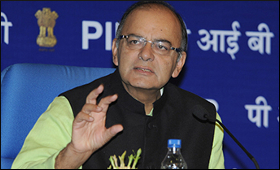|

|
India simplifies foreign investment norms
|
|

|
|
| Top Stories |
 |
|
|
|
SME Times News Bureau | 17 Jul, 2015
In a reformist move to attract more foreign investment and simplify the norms, India on Thursday clubbed the categories under which capital flows into domestic companies from abroad, to determine the compliance towards overseas equity cap imposed in some sectors.
In a decision taken by the union cabinet at a meeting presided over by Prime Minister Narendra Modi, foreign institutional investment (FII), foreign portfolio investment, qualified foreign investment, non-resident Indian investments have been clubbed into a single composite category.
"The cabinet approved the introduction of composite caps for the simplification of foreign direct investment," Finance Minister Arun Jaitley told reporters in New Delhi after the decisions, adding relevant changes in the consolidated policy on foreign equity have also been given a nod.
Among the decisions, a single entity under any of these categories can invest up to 10 percent of the capital of a company, while collectively it can go up to 24 percent.
But the cabinet has allowed companies to raise the limit of such investments beyond 24 percent as long as these fall within the sectoral cap in which it operates. This apart, no changes were made in the existing limits on foreign equity in various sectors.
"The decision of merging the limits of foreign direct and portfolio investments into a composite cap is essentially a move towards giving companies more flexibility for deciding on the desired mix of foreign investment," a senior finance ministry official said.
"It will also bring in transparency and clarity on the country's foreign investment policy."
For the purpose of calculating foreign direct investment, equity funds injected by various types of entities mentioned above will be clubbed, irrespective of how and in what form it has been made. But debts will not be treated as foreign equity unless they are to be converted into shares.
For foreign indirect investment, that is inflows in the form of venture capital or seed money, by entities that are otherwise not engaged in the business that the target company operates, will also be clubbed as above to determine the adherence to the sectoral cap. Here, too, debt will be exempt.
These decisions will, however, not impact on sectors where the government already permits 100 percent foreign equity, a note issued after the cabinet decision said. But they will apply in cases -- like transfer of ownership from an Indian to a foreign entity -- where prior government approval is mandatorily required.
While the domestic industry and foreign players have been seeking such changes, some political parties, notably the Congress and the Communists, have opposed it on the ground that portfolio investment is in nature a short-term, hot money that can leave the country at any time.
But Prime Minister Modi's government has maintained that an overhaul such as one on Thursday was long pending.
The official statement said due to similar policies followed by the government for the past 14 months and the various initiatives such as "Make in India", the foreign equity inflows have seen a 48 percent growth since September last year.
The country, the note said, witnessed an unprecedented growth of 717 percent, or $40.92 billion in investments, by foreign institutional investors.
Commenting on the development, Vivek Gupta, partner, BMR Advisors said: "For sectors such as banking, where currently portfolio investment was restricted up to 49 percent, the amendment seems to suggest that the said limit could now be raised up to the overall limit of 74 percent subject to government approval route for the excess."
"One would await the department of industrial policy and planning (DIPP) rules language on certain aspects, particularly in relation to the assertion around no need for government approval for transfer of non controlling stakes," he added.
|
|
|
| |
|
|
|
|
|
|
|
|
|
|
|
|
|
|
| |
| Customs Exchange Rates |
| Currency |
Import |
Export |
US Dollar
|
66.20
|
64.50 |
UK Pound
|
87.50
|
84.65 |
Euro
|
78.25
|
75.65 |
| Japanese
Yen |
58.85 |
56.85 |
| As on 13 Aug, 2022 |
|
|
| Daily Poll |
 |
 |
| PM Modi's recent US visit to redefine India-US bilateral relations |
|
|
|
|
|
| Commented Stories |
 |
|
|
|
|
|
| |
|